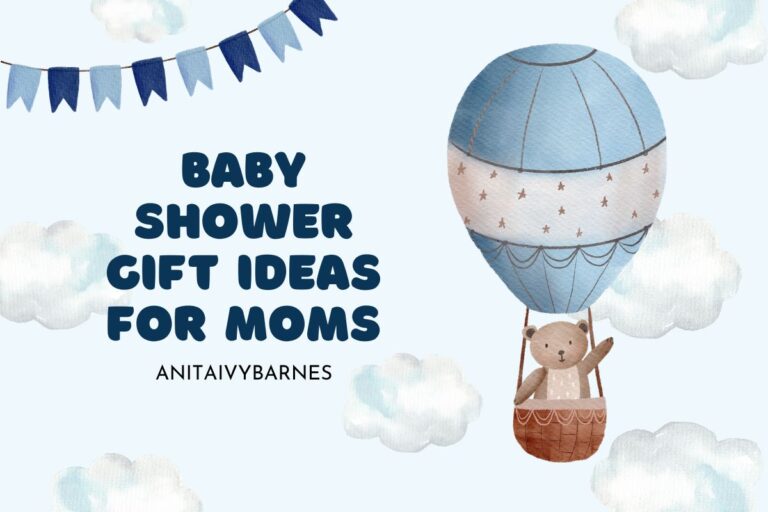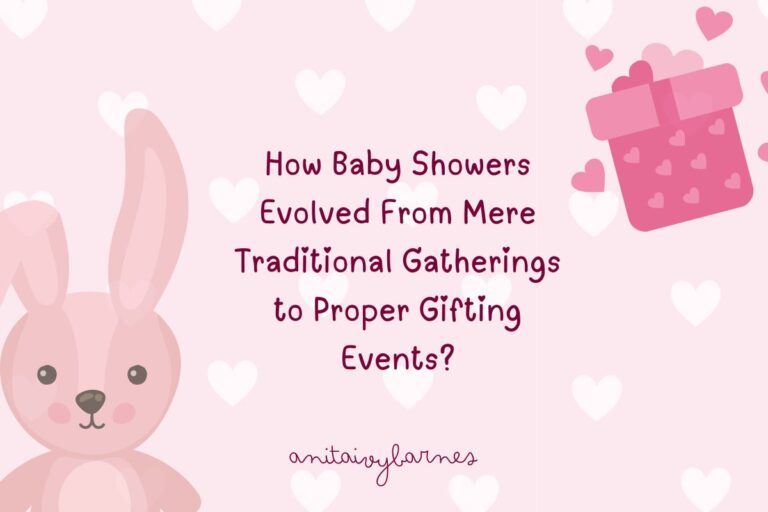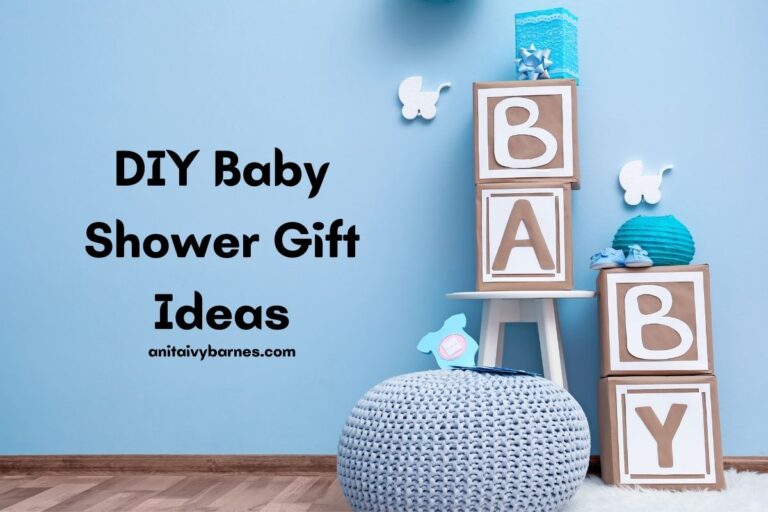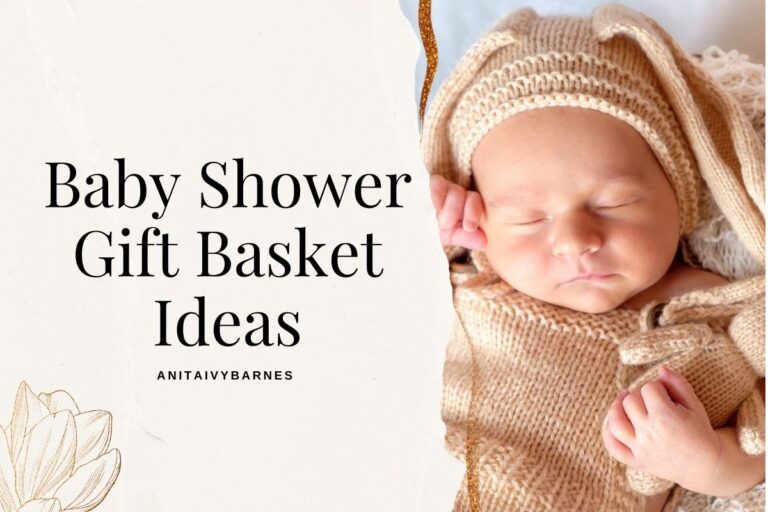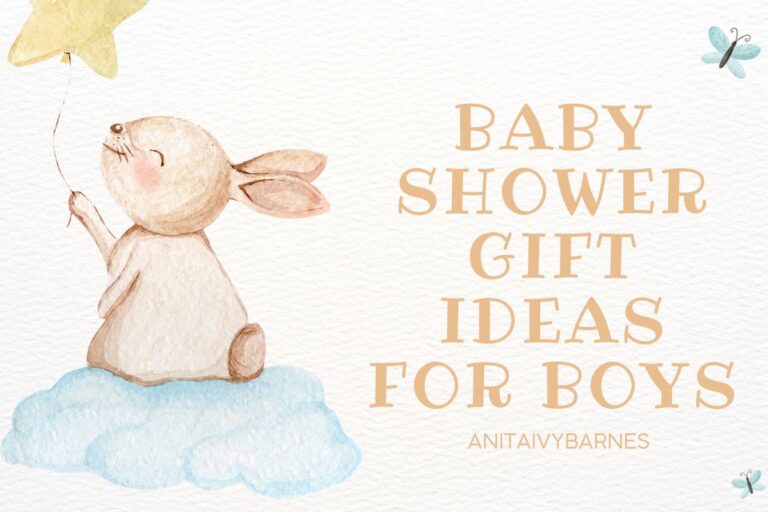How the Baby Product Industry Fuels Consumerism Surrounding Baby Showers
Sarah’s baby registry read like a high-tech wish list: a self-rocking bassinet, a monitor that tracked the baby’s breathing and oxygen levels, a stroller with all-terrain wheels, and a built-in snack tray.
As she scrolled through the endless options, a mix of excitement and unease washed over her. Of course, she wanted the very best for her child, but did “the best” mean the most expensive or the most technologically advanced?
Sarah couldn’t shake the feeling that she was being expertly manipulated, targeted by advertisements and mommy blogs assuring her that these items weren’t luxuries – they were necessities.
Sarah isn’t alone.
Today’s expectant parents navigate a relentless tide of marketing messages fueled by the baby gift industrial complex.
This powerful network of manufacturers, retailers, and influencers thrives on convincing parents that their newborn requires a vast collection of specialized gear. Yet, this relentless consumerism has consequences.
Parents find themselves burdened with financial pressure, overwhelmed by excess, and increasingly concerned about the environmental impact of a baby product industry built on short-lifespan items and ever-changing trends.
In spite of all these, today’s expectant mothers and fathers are inundated with an overwhelming array of ‘must-haves’.
How did we become a society that believes a newborn can’t thrive without dozens of meticulously designed contraptions?”
And who exactly are to blame?
The Classic Fear-Mongering Take – Are Social Media Influencers Causing The Trauma?
New parents are naturally anxious about protecting their vulnerable infants.
Companies capitalize on this anxiety, relentlessly emphasizing safety concerns to promote their products.
A simple diaper change becomes a potential biohazard without a designer wipe warmer.
A walk outside necessitates a $50 organic sunscreen specifically formulated for a baby’s delicate skin.
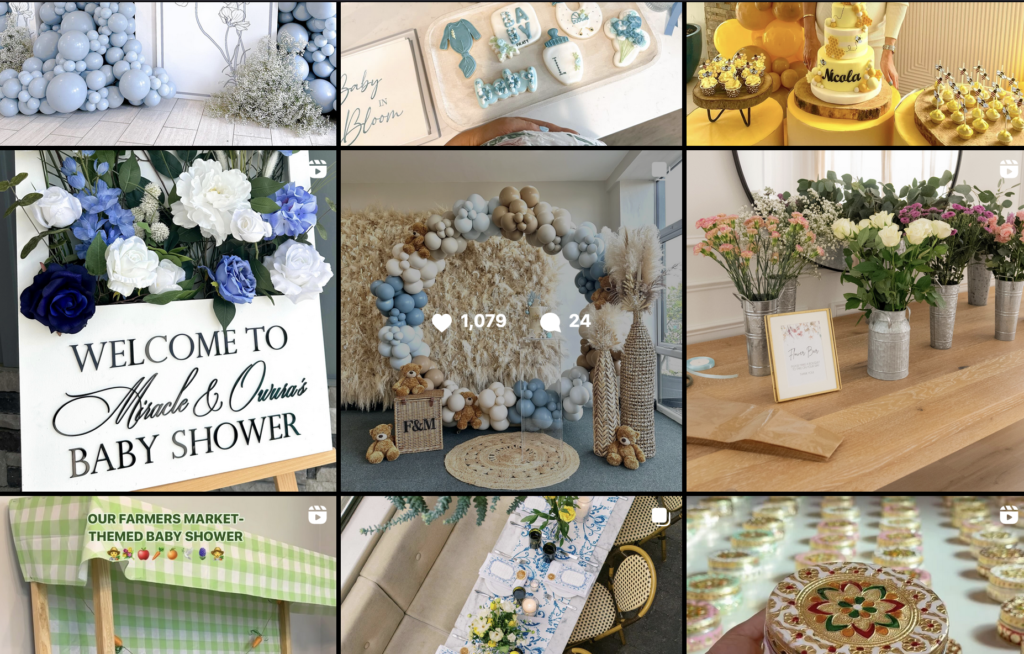
While some parental concerns are valid, many products are marketed as solutions to overinflated fears, convincing parents they can shield their babies from every possible risk with the right purchase.
The Age-Old Social Dilemma
Social media platforms, particularly Instagram, have become breeding grounds for a perfectly curated image of parenthood.
Mommy bloggers, often receiving free products or direct compensation from companies, fuel this idealized vision.
They showcase lavish nurseries, adorable baby outfits, and the latest “it” gadgets. This constant stream of picture-perfect babyhood creates immense pressure on expectant parents to assemble an equally impressive collection of products, blurring the lines between true needs and manufactured desire.
The illusion of effortless perfection is a key aspect of this phenomenon.
Instagram’s emphasis on visuals lends itself to meticulously staged photos with designer mobiles, color-coordinated clothing, and perpetually content babies.
“The mommy blogger phenomenon taps into deep-seated insecurities we have as parents,” explains Dr. Michele Borba, parenting expert and author. “It whispers that if we just buy the right things, we can achieve that unattainable perfection.“
For new and anxious parents, this imagery can be both inspiring and deeply demoralizing, leaving them with the belief that their own reality is somehow inadequate.
Sarah Blackwood, writer and social critic, observes: “Instagram has turned parenthood into a competitive sport, and the main currency is the accumulation of stuff. It’s harmful for parents and ultimately, for children.”
The drive to emulate what they see online can lead families into significant financial strain.
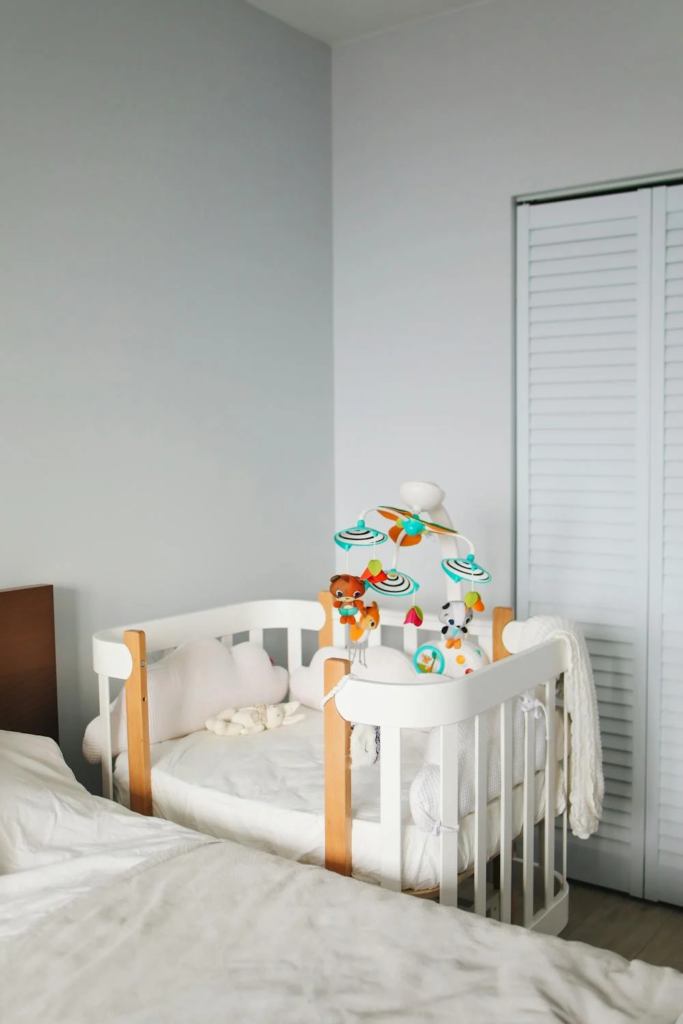
Additionally, the focus on material goods risks overshadowing the more vital aspects of preparing for a new arrival: building a strong emotional bond and understanding the real, unfiltered joys and challenges of parenthood.
As one anonymous commenter in an online forum candidly shared, “I used to love following mommy bloggers, but it started making me feel so inadequate about my own home and the ‘experiences’ I wasn’t providing for my kids. It’s a relief to remember it’s all a carefully crafted facade.“
They Know You’re Coming
Online data collection has become frighteningly sophisticated, and the baby product industry is a master of its use.
The moment a woman searches for pregnancy tests or starts browsing maternity clothing websites, the algorithms kick into gear. Pop-up ads for organic onesies, high-tech baby monitors, and developmental toys begin flooding social media feeds and search results.
These personalized advertisements expertly exploit both the anticipatory excitement and the underlying anxieties of new parenthood, making each click feel less like a choice and more like a parental obligation.
“The precision with which expectant parents are targeted online is unsettling,” remarks consumer privacy advocate Rachel Griffin. “From the first Google search to the first baby-related purchase, they are essentially walking into a digital showroom designed specifically to play on their hopes and fears.”
This relentless targeting blurs the line between informed consumerism and pressured impulse buying.
Every search, every click, and every purchase provides companies with valuable data. This allows them to tailor their advertising campaigns with laser-like focus. A simple search for swaddles leads to weeks of ads promoting other sleep-related products.
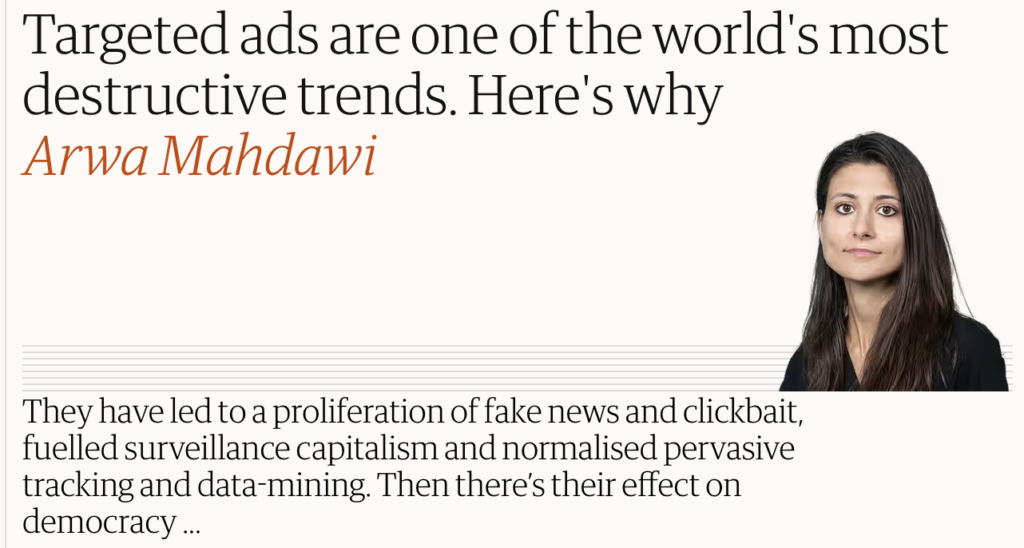
An informational article about infant car seats triggers a barrage of stroller system promotions. New parents, already overwhelmed with information, are easily swayed by this constant stream of “targeted” suggestions.
“Sometimes, the ads felt more like accusations than helpful tips,” confesses new mom Emily Patterson. “It’s like they knew I was feeling insecure, and they used that to convince me I absolutely needed every new gadget they threw at me.”
The insidious power of targeted advertising raises concerns about manipulation and erosion of consumer choice within the baby gift industrial complex.
Experts Weigh-In
To gain a deeper understanding of the forces driving the baby gift industrial complex, it’s vital to examine the issue through the lenses of child development specialists, environmental scientists, and economists/sociologists.
“Babies fundamentally need very few material things,” explains Dr. Vanessa LoBue, a renowned child development researcher. “They thrive on responsive caregiving, a safe environment, and opportunities for sensory exploration.”
While certain items like car seats and diapers are practical necessities, many products aggressively marketed towards parents are superfluous or even potentially hinder natural development.
The relentless push for specialized baby gear can raise parental anxieties and create a false dichotomy between “good” parents who buy everything and inadequate parents who don’t.
This risks undermining parental confidence and distracting from the far more important work of forming strong bonds and offering a stimulating, loving environment.
“The baby product industry contributes significantly to landfill waste and unsustainable manufacturing practices,” warns Dr. Emily Dawson, an environmental scientist specializing in consumer goods.
Many baby items have surprisingly short lifespans, designed for obsolescence.
The emphasis on novelty and trendiness fuels a cycle of rapid disposal and replacement.
Additionally, the demand for “eco-friendly” products can be misleading. Buzzwords like “organic” and “sustainable” are often used liberally in marketing with little oversight.
Parents wanting to make environmentally conscious choices face a labyrinth of confusing claims and the real cost of ethical manufacturing is often high.
“The baby product boom reflects broader socioeconomic trends,” notes sociologist Dr. Mark Edwards. Changing family structures, delayed parenthood, and the rise of dual-income households contribute to higher disposable income being directed toward children. Intensified social pressure to provide the “best of everything” for one’s child further fuels spending.
However, this consumerist frenzy can disproportionately burden families of lower socioeconomic status, exacerbating inequality.
The societal expectation of lavish baby showers and extensive registries can create a sense of obligation for those struggling to afford true necessities.
It’s crucial to examine the long-term financial impact of this industry on families at all income levels.
Sustainable Alternatives
While the baby gift industrial complex pushes a relentless stream of new products, a growing movement toward more sustainable and conscious parenting practices is emerging.
This encompasses several key elements:
Secondhand Market Embrace
Savvy parents are increasingly recognizing the value of the secondhand market.
Online platforms, consignment stores, and local parenting groups offer a treasure trove of gently used baby gear.
This not only offers significant savings but also extends the lifespan of products, reducing strain on landfills. “I found almost everything I needed for my son through Facebook marketplace,” shares Jessica Miller, mother of two. “It saved me hundreds of dollars and knowing I was preventing perfectly good items from becoming waste felt fantastic.”

DIY and the Sharing Economy
Fueling this movement is a resurgence of DIY skills and a focus on community sharing.
Parents are making their own baby food, sewing cloth diapers, and crafting simple toys.
Additionally, communities are forming around sharing expensive or infrequently used items like baby carriers, pack-n-plays, and even strollers. “The idea that we all need to own every single baby item is ridiculous,” notes environmental activist Sarah Klein. “Community sharing reduces consumption and reminds us that strong support networks are actually more essential than the latest gadgets.“
The Rise of Mindful Consumerism
At the heart of these trends is a shift toward mindful consumerism.
Advocates are encouraging parents to think critically before they buy. They emphasize prioritizing quality over quantity, choosing items built to last, and opting for natural, non-toxic materials whenever possible.
“Our choices as parents have power,” states blogger and conscious parenting advocate Melissa Davis. “By asking where products come from, how they’re made, and if we truly need them, we can support a healthier future for our children and the planet.“
Breaking Free from the Baby Industrial Complex
The baby gift industrial complex, driven by relentless marketing and an emphasis on consumerism, has created a culture where parents often feel immense pressure to accumulate a vast collection of products, many of which are unnecessary, expensive, and potentially harmful to the environment.
Fear-based advertising, targeted data collection, and the curated perfection of social media influencers all contribute to this overwhelming pressure.
However, change is possible.
Parents can reclaim their power by embracing critical thinking.
Before clicking “add to cart”, they can research product necessity and safety, explore secondhand options, and consider alternative approaches like making items themselves or sharing resources within their community.
The key is to focus on what is genuinely best for their child’s wellbeing and development, without succumbing to the illusion that true love translates into a full shopping cart.
The baby product industry must also bear responsibility.
Ethical marketing practices, a greater emphasis on sustainability, and transparency are essential for building trust within the parent community.
Policymakers could play a role too, by implementing clearer regulations related to product safety and sustainability standards.
Ultimately, the power to shape a healthier and more sustainable approach to parenthood lies in the hands of parents themselves.
By resisting the urge to buy into the hype, prioritizing quality over quantity, and seeking out environmentally conscious choices, parents can nurture their children while also nurturing a better future for them.
This is the true essence of mindful parenting, and it holds the promise of breaking free from the relentless cycle of consumerism promoted by the baby gift industrial complex.
